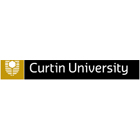Graduate Certificate in Professional Accounting
Graduate Certificate in Professional Accounting
This course is intended to help you step into the field of accounting for the first time. It covers an introductory understanding of accounting and the budget process. You’ll study a range of specialised topics, including corporations law, cost behaviour, financial accounting, job order costing systems, management accounting, planning and…
Categories
COURSE DESCRIPTION
This course is intended to help you step into the field of accounting for the first time. It covers an introductory understanding of accounting and the budget process.
You’ll study a range of specialised topics, including corporations law, cost behaviour, financial accounting, job order costing systems, management accounting, planning and special decision-making issues.
You’ll also learn typical accounting applications such as billing, general ledger, inventory, purchasing and sales.
Career information
Graduates generally find employment with private and public organisations nationally and internationally.
What you’ll learn
Apply principles of accounting, economics, information systems, statistics, law and social sciences as they relate to reporting business activity.
Critically analyse issues in collection, recording and reporting of economic activity to enable the development of accounting information systems giving cost effective decision useful information.
Locate, extract and critically appraise decision useful information related to economic activity from sources within an organisation and from external sources.
Relate the significance of commercial events and issues to the business and investing community using effectively structured financial communication and appropriate language.
Use electronic resources to effectively interrogate databases, analyse data, collect information and communicate.
Take responsibility for self directed learning and the development of a career long attitude of continuing professional development.
Recognise the global nature of accounting by applying international financial reporting standards and appreciate the information requirements of a global financial system.
Demonstrate an understanding that cultural practices and differences impact commercial practices and interpersonal relations.
Apply an ethical approach to analysing and reporting commercial activities; advising clients; demonstrate leadership and the ability to delegate tasks to ensure timely outcomes; Work independently and in teams to achieve agreed outcomes.
REQUIREMENTS
A bachelor degree (or equivalent) in a field of study other than accounting, or significant relevant work experience (typically three to five years).
Certificate in Advanced English (CAE): Grade C; and Pearson Test of English Academic: 60. IELTS (International English Language Testing System) – Listening, Reading, Writing, and Speaking – 6.0; Overall band score 6.5; TOEFL (Test of English as a Foreign Language) 79 (overall) Reading 13 Listening 13 Speaking 18 Writing 21.
EDUCATIONAL INSTITUTION
Curtin University is Western Australia’s largest and most culturally diverse university with Australia’s third largest international student population. Around 60,000 students from more than 130 countries study a Curtin degree, at locations including Perth, Margaret River, Kalgoorlie, Sydney, Malaysia and Singapore. Our cultural diversity adds a rich and valuable dimension to the campus atmosphere, preparing all graduates to live and work effectively in an increasingly global environment. We offer a range of industry-aligned undergraduate and postgraduate courses in business, humanities, health, engineering and related sciences. We also have a long-standing focus on Aboriginal and Torres Strait Islander education and culture, supported by our Centre for Aboriginal Studies.Curtin is widely recognised for its practical research that is focused on solving timely, real-world problems. In recent years our research activity has grown significantly, driving our rapid rise up the international university rankings.As a university that never settles, we will continue to develop existing partnerships and establish new ones in areas relevant to our research and teaching.




